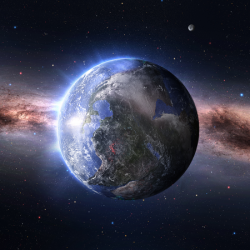a story about searching for one’s lost tribe
Part 1 https://liciaberry.com/2009/11/24/blue-eyed-indian/
Part 2 https://liciaberry.com/2012/01/11/blue-eyed-indian-part-2/
Hatteras is the end of the line, the southernmost village on Hatteras Island. In the old days, you had to take a boat to get to the remote, scrubby shores. Hatteras Island has had a bridge that connects it to the mainland since 1962, 3 years before I was born; when the bridge was being considered, some of the locals saw it as a boon for the local economy and welcomed the connection to the mainland, but others complained that it would bring “foreigners”(or “ferners”, as my grandmother said) to the island and change their way of life. Both turned out to be true.
The Cape point juts out into the sea, splitting the waters. To quote Wikipedia, “two major Atlantic currents collide just off Cape Hatteras, the southerly-flowing cold water Labrador Current and the northerly-flowing warm water Florida Current (Gulf Stream), creating turbulent waters and a large expanse of shallow sandbars extending up to 14 miles (23 km) offshore. These shoals are known as Diamond Shoals. Because mariners utilize ocean currents to speed their journey, many ships venture close to Cape Hatteras when traveling along the eastern seaboard, risking the perils of sailing close to the shoals amid turbulent water and the frequent storms occurring in the area. So many ships have been lost off Cape Hatteras that the area is known as the “Graveyard of the Atlantic“.”
Some of my ancestry comes from these foundered ships; even more of my ancestry took advantage of the wreckage of these vessels. My father told stories of folks that would actually light bonfires on the beach to lure the ships in, onto the sand bars. The people of Hatteras were opportunists. That’s what a harsh environment that threatens your survival makes you.
Opportunism can be taken many ways. A wild animal happens upon another animal’s kill and gets to eat dinner, and we understand that this is the ultimate efficiency of nature. Another viewpoint is that the opportunist is lazy, and doesn’t deserve anything but scorn unless they make their own way; perhaps this is why we dislike vultures. Even another is that the opportunist is a slimy, good for nothing cur that needs to be corrected or managed, such as a wolf taking advantage of a farmer’s livestock, prompting hunting to the brink of extinction. Of course, these descriptions are anthropomorphizing the animal in question, and don’t hold water in intelligent conversation. But what about when people take what they want in an opportunistic manner?
Opportunism is sometimes what happens when one party perceives a weakness in another party. The opportunist wants what they want, and will take it if they see an opening. The kindness that the original inhabitants of my homeland showed to the visitors from the tall ships was perceived as a weakness, when in fact it was a sense of family.
The taking of the land from aboriginal people is an opportunism that speaks to a broken soul, a lack of understanding of what it means to belong to a tribe, to the land, to one another, to the universe. In this case, the opportunism displayed needs correction.
I feel we must take back what belongs to us. No, I’m not advocating that we make wars on the government to return the land to its original inhabitants. War makes more war, and that’s not what will cure the sickness of separation that created this mess. But I do advocate that we take back our bodies, minds and spirits from those who would prey on our fears.
I feel we have been raised in a culture of control. It goes way, way back. Fear is how to maintain power over others. Unless we are inspired and encouraged to trust ourselves, we can become willing sheep, following the herd and doing what we’re told. If we don’t stand in our own strength, we are willing targets for the opportunists in the world.

We are in a time of our development as a species that we can no longer see ourselves as separate. There can be no more pointing fingers, no more waiting to be saved, no more “us” and “them”. We must each take responsibility for ourselves as the powerful creatures we are and own our sovereignty, our divinity, our direct connection to All Creation.
In my own journey to take back what is mine, I’ve had to decide whether I would listen to the voices that want to define me in ways that suit their needs, or listen to the yearning for my own acknowledgment of what I feel is true for me. Whenever I doubt my voice, one question brings it all back into perspective: Who must I live with for the rest of my life? Of course, the answer is me.
I’ve had multiple experiences that lead me to believe that indigenous values can save us from ourselves; it has become clear to me as I’ve made room for my aboriginal inner voice that it remembers the way to feel connection and knows how to walk in balance. Feeling our connection to the land once more is a kind of belonging that we yearn for from our oldest bloodlines and in our DNA. We are ALL aboriginal if you go back far enough; we ALL belong to the Earth. We must go inside, and remember. This recognition may be what we need to correct the opportunism that runs rampant in the world.
copyright Licia Berry 2012

